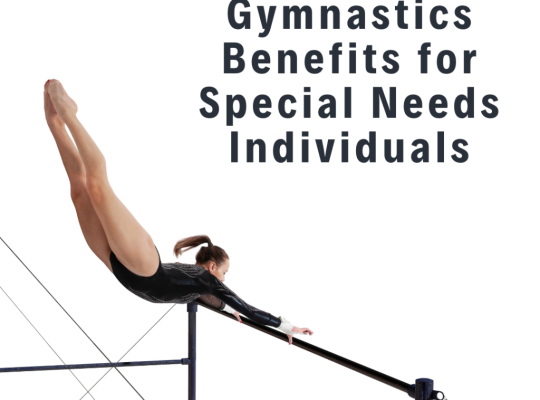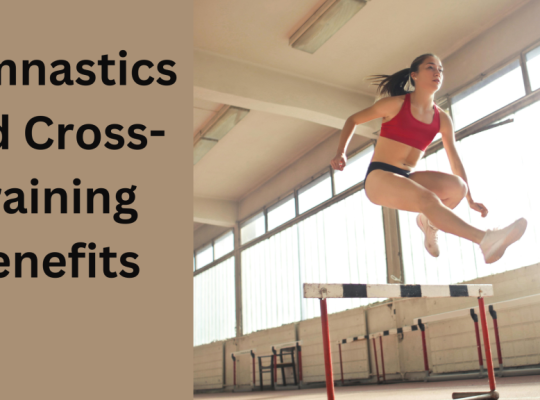Introduction
Gymnastics involves a blend of precision, grace, and intense focus. Whether it’s the moves, on the floor or the gravity-defying stunts on the bars, each action showcases the gymnast’s incredible physical prowess. Beyond the routines lies a significant mental challenge that can shape a gymnast’s path to success. In this realm where tiny margins separate victory from defeat, applying sports psychology principles can provide athletes with a crucial mental edge that could determine whether they claim victory or fall just short of it.
Keywords; gymnastics, sports psychology, mental strength, concentration, determination, goal achievement, self-belief, self-confidence boosters, emotional control techniques, stress handling strategies, body perception awareness eating habits management tips from coaches and sports psychologists.
The Power of the Mind; Enhancing Peak Performance
While physical training is undeniably vital for gymnasts’ development,
overlooking their well-being is akin, to constructing a structure on an unstable foundation. By harnessing and training the mind
athletes can push their performance to new heights by transforming potential into tangible results.
In the realm of gymnastics, sports psychology plays a role by delving into the relationship, between one’s mind and performance in the sport. It has become a factor, in revolutionizing how gymnasts approach their game, providing them with a diverse array of strategies to tackle and surmount various psychological obstacles that may impede their achievements.
A Guide to Managing Anxiety and Stress in Gymnastics
The expectations of performing in front of large crowds and critical judges can lead to overwhelming anxiety and stress, for even the most experienced gymnasts. With the help of sports psychologists, gymnasts can acquire methods to handle these emotions, turning them into motivation for achieving excellence.
Techniques such as breathing exercises, progressive muscle relaxation, and mindfulness meditation are utilized to foster a composed and focused mindset during certain moments. Additionally, visualizing a routine from start to finish can assist gymnasts in preparing and perfecting their performance enhancing confidence and minimizing errors.
Understanding the Mental Aspect of Injury Prevention
Sports-related injuries pose setbacks, for athletes and gymnasts, who may face lengthy recovery periods that jeopardize their athletic careers. Interestingly, mental fatigue and stress also contribute to the susceptibility of sustaining injuries.
Acknowledging this correlation, sports psychologists collaborate closely with gymnasts to encourage sleep patterns, relaxation practices, and stress management approaches.
By giving importance to well-being, athletes can enhance their ability to tune in to their bodies and avoid overexertion, thereby decreasing the chances of getting injured and ensuring a lasting career in their sport.
Key Psychological Factors for Gymnastics Success
Psychological elements play a significant role in the success of a gymnast. Let’s delve into some of them:
1. Mental Resilience and Concentration; The routines in gymnastics require unwavering focus and the skill to block out distractions. Practices such as mindfulness meditation and visualization can assist gymnasts in honing their concentration skills and staying composed under pressure. Picture yourself flawlessly executing a vault landing or nailing a beam dismount. Visualization helps train your mind and body for performance, boosting confidence and sharpening focus.
2. Drive and Goal Setting; Intrinsic motivation, which is the desire to excel and accomplish objectives, drives a gymnast’s commitment throughout their training journey. Establishing goals (Specific, Measurable, Achievable, Relevant, and time-bound) provides a path for progress and sustains motivation at peak levels. For instance, a gymnast could set a goal like “Perfecting a double layout dismount on the bars within three months.” This goal is precise and measurable (via video analysis), attainable with training efforts pertinent, to skill advancement, and has an achievable timeframe.
When dealing with obstacles, it’s important to keep an attitude and appreciate small progress to stay motivated.
Related article: Gymnastics Benefits for Special Needs Individuals
3. Belief, in oneself and self-worth; Confidence is a gymnast’s faith in their ability to excel. Encouraging self-talk, where you replace thoughts with uplifting affirmations, can be a tool for boosting confidence.
Statements like “I’m capable ” and “I’ve got this “. I’ve put in the work and I’m prepared” are examples of positive self-talk that can replace uncertainties and worries. Visualization, as previously mentioned, also contributes to building confidence by envisioning success. Overcoming self-talk and performance anxiety involves replacing those thoughts with affirmations and reflecting on past achievements to bolster confidence.
4. Managing Emotions and Stress; The pressure to perform perfectly can lead to stress and anxiety among gymnasts. Techniques such as breathing exercises and progressive muscle relaxation can help regulate these emotions and maintain a composed state. Developing strategies for handling competition stress and fear of failure enables gymnasts to redirect their energy into a positive driver for performance.
5. Body Image Concerns and Eating Disorders; Maintaining a physique can pose a challenge, for gymnasts.
Individuals need to nurture a perception of their bodies and establish a connection, with food. Both coaches and parents have an impact on fostering a body image and promoting nutritious eating habits that enhance athletic training and performance. Being able to identify the indications of eating disorders and seeking expert assistance as needed are essential, for maintaining wellness.
The Role of Coaches and Sports Psychologists, in Gymnastics
Coaches play a role in nurturing a mindset among their athletes. They establish a training atmosphere that promotes wellness alongside physical growth. Through reinforcement, recognizing and addressing self-talk and offering guidance on visualization and relaxation techniques, coaches contribute to the mental well-being of their athletes.
Moreover, collaborating with a sports psychologist who specializes in working with gymnasts can provide training support. These professionals can design programs tailored to needs and objectives. By utilizing methods like cognitive behavioral therapy (CBT) to challenge thought patterns and develop coping strategies for anxiety management, sports psychologists play a role in enhancing mental performance.
A Comprehensive Approach to Achieving Excellence in Gymnastics
Attaining peak performance in gymnastics necessitates an encompassing strategy that emphasizes both mental and physical preparation. Mastering the aspects of the sport equips gymnasts with the skills required to surmount obstacles, develop resilience and showcase their full potential.
Through the implementation of techniques such as toughness exercises setting goals and managing emotions effectively, gymnasts can cultivate the edge essential for success. Coaches and sports psychologists are instrumental, in ensuring athletes’ mental well-being, fostering a training environment, and tailoring training regimens to meet requirements.
Imagine a gymnast gracefully moving through the air, defying gravity, with a routine. Beyond the display, there is a battle within the athlete’s mind leading up to that moment of performance. Success in gymnastics goes beyond strength and flexibility; it involves a captivating interplay between physical prowess and mental acuity.
By utilizing strategies, gymnasts can turn nerves into focus, self-doubt into unwavering confidence, and setbacks into learning opportunities. It’s important to remember that a champion gymnast isn’t solely shaped in the gym; their mental fortitude plays a role.
Conclusion
In the quest for excellence in gymnastics, blending physical and mental training is essential. While rigorous physical preparation is vital for executing routines, overlooking the psychological aspect of readiness can hinder realizing one’s full potential.
By embracing sports psychology principles, gymnasts can cultivate resilience, laser focus, and unwavering self-belief. They can develop skills to cope with anxiety and stress, effectively setting themselves up for success in different settings. Through techniques like goal setting and visualization, they can harness their drive, for progress and propel themselves towards greater achievements.
Furthermore, having the support of coaches and sports psychologists is key, to creating a training environment and addressing individual mental well-being. These mentors play a role in promoting body image, encouraging good eating habits, and helping athletes develop effective coping strategies for challenges, enhancing not only their physical skills but also their mental strength.
With the gymnastics community evolving, it is crucial to adopt an approach that combines both mental and physical training. By focusing on preparation, gymnasts can unleash their potential, surpassing previous limitations and paving the way for a new era of excellence, in this captivating sport.
FAQs;
Is training only beneficial, for gymnasts? Not all! Mental training techniques can be advantageous for gymnasts at any level, from enthusiasts to those striving for success. Practicing visualization and positive self-talk can enhance focus, confidence, and overall performance for athletes of all calibers.
How can parents best support their child’s well-being in gymnastics? Parents play a role in creating a nurturing and encouraging atmosphere. Instead of focusing on perfect scores, it’s essential to acknowledge and celebrate their progress. Encouraging ways to deal with stress and setbacks while providing unwavering support is key. Keeping communication lines open helps detect signs of strain, like changes in sleep patterns, appetite, motivation levels, or heightened anxiety, so that appropriate help can be sought if necessary.
What are some indications that a gymnast might be facing mental challenges? Variations in sleep patterns, appetite loss, decreased motivation, or increased anxiety could signal strain. Establishing a dialogue and fostering an environment encourage gymnasts to reach out for assistance when needed. Additional signs may include self-talk emotional outbursts or a decline, in performance despite consistent training efforts
Can mental preparation be beneficial, in preventing injuries in gymnastics? Certainly, mental training plays a role in avoiding injuries. Sports psychologists can assist gymnasts in implementing strategies such, as stress management, relaxation techniques, and mindfulness to prevent fatigue, which is a factor that can heighten the risk of injury. Moreover, visualization methods can aid gymnasts in practicing form and technique, thereby reducing the chances of making errors that could result in injury.
How can gymnasts address performance? The fear of failure effectively? Sports psychologists offer techniques to help gymnasts manage performance anxiety and overcome the fear of failure. These approaches may involve behavioral therapy (CBT) to challenge thinking patterns, practicing deep breathing exercises, progressive muscle relaxation techniques, and establishing healthy coping mechanisms. Encouraging self-talk visualization exercises and reflecting on accomplishments can also contribute to boosting confidence levels and conquering these psychological hurdles.








